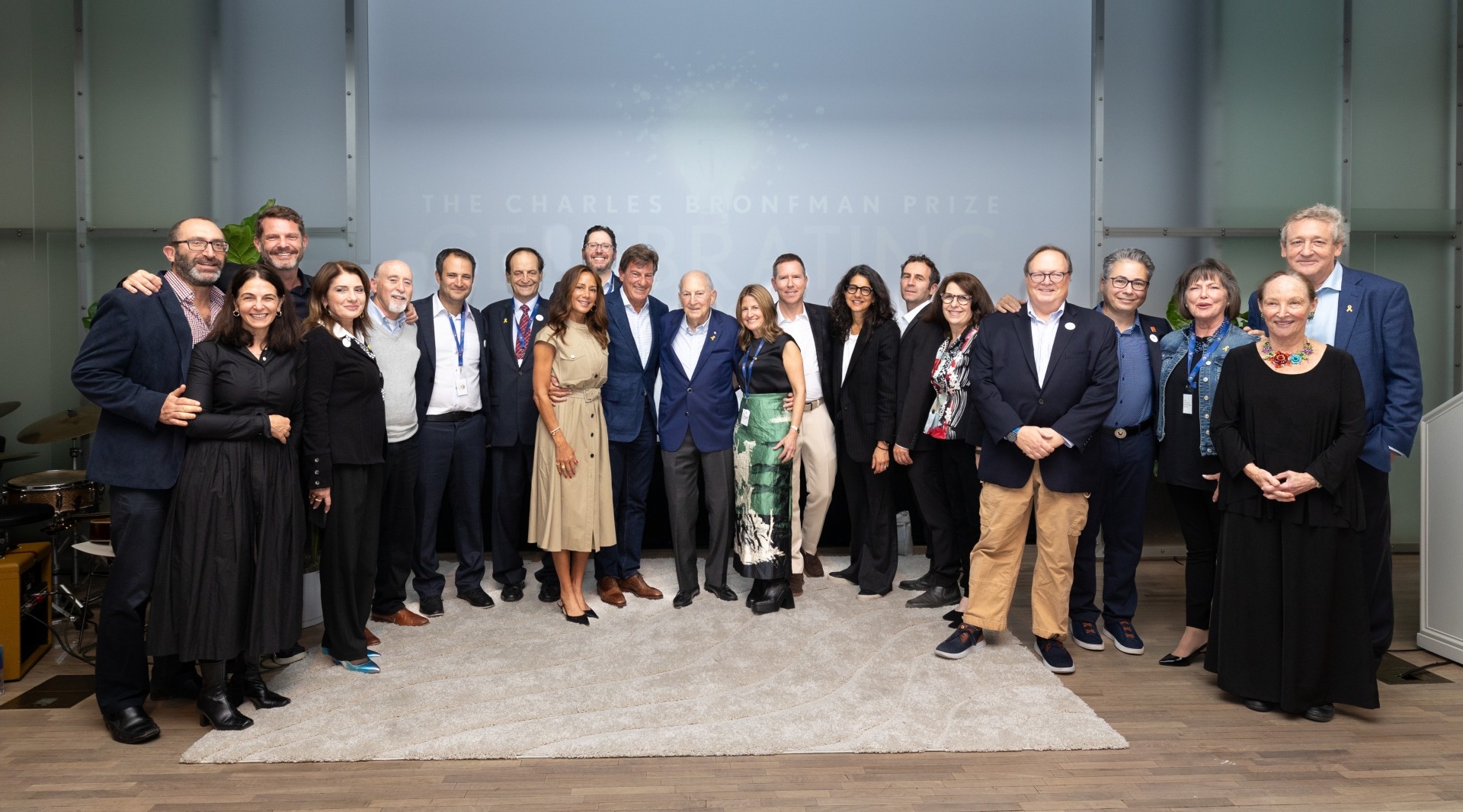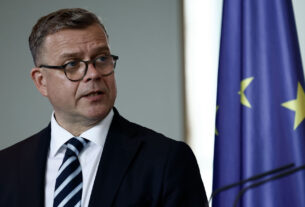NEW YORK — When Sasha Chanoff received the $100,000 Charles Bronfman Prize in 2010 for his work helping refugees worldwide find safe haven, jobs and social stability, he used the occasion of the awards ceremony in New York to introduce a family that his organization had helped reunite.
“A lot of new donors came out of the woodwork after that event,” Chanoff recalled. “It was a real catalytic point for us. If people see the prize associated with you, they know you have gone through a lot of vetting.”
The experience was a testament to the power of the annual prize, which is awarded to a Jewish humanitarian under age 50 whose work has significantly benefitted humankind.
At the closing reception culminating four days of panels and conversations by the prize laureates and judges for the prize’s 20th anniversary at the Jewish Museum in New York on September 25, numerous recipients talked about the positive ripple effect that receiving the prize has had on their work.
Bronfman, 93, the Canadian businessman and philanthropist for whom the Prize is named, spoke of how grateful he feels for the extraordinary work of the prize recipients.
“The quality of applicants and recommenders for the prize is incredible,” Bronfman said. “I just want to thank each one of the Bronfman Prize Laureates who have graced us with their brilliance, their compassion, their heart and their soul.”
The prize was founded in 2004 by Ellen Bronfman Hauptman and Stephen Bronfman, together with their spouses, Andrew Hauptman and Claudine Blondin Bronfman, as a birthday present to honor their father.
Two decades on, with wars and crises unfolding around the globe, it’s more vital than ever to elevate the work of humanitarians putting into practice the principles of repairing the world, noted speakers at the event.
“In many ways, things are at the bottom,” said Yotam Polizer, CEO of the Israeli humanitarian aid organization IsraAID, who received the Charles Bronfman Prize in 2023. “And every time we reach a new low with the situation in Israel in the Middle East, there are always opportunities.”
Polizer added, “Charles, this is something that you inspire me to do: always see how we can not only bounce back, but we can bounce forward.”
The prize is something of a capstone for Bronfman. For decades he ran his family’s billion-dollar corporation, Seagram, and a variety of other business initiatives; he even was the part owner of the Montreal Expos, his hometown Major League baseball team.
As a philanthropist, he co-founded Birthright Israel, which has brought over 850,000 Jewish young adults to Israel on free 10-day educational group trips and which is credited with helping measurably bolster Jewish identity and Israel connections among North American Jews. Bronfman has supported countless other Canadian, Israeli and American Jewish projects.
When his children first told him of their plan for creating the prize in his name, Bronfman was leery of the idea of restricting awardees to 50 or under. “Who’s ever done anything under 50?” he recalled saying.
But it turns out the nominating committee has had no shortage of worthy candidates over the last 20 years; the challenge has been whittling things down to a single awardee.
Charles Bronfman speaks on the occasion of the 20th anniversary celebration of the $100,000 annual prize that bears his name, Sept. 25, 2024. (Claudio Papapietro)
Dan Meridor, the former Israeli deputy prime minister who has served as a prize judge since its founding, said he’s always afraid the judges might make a mistake in their selection process — not because an honoree is undeserving but because there are always so many excellent candidates.
“It was a pleasure in the cynical world we live in today with so many dark spots all around us,” Meridor said of narrowing down the field of candidates. The prize means “celebrating and promoting triumphs of Jewish values.”
Jay Feinberg founded the Gift of Life Marrow Registry in 1991 after he was diagnosed with leukemia and needed a bone marrow transplant but was unable to find a match. Feinberg, who eventually found a donor, was the inaugural Charles Bronfman Prize recipient.
When he met with Charles Bronfman to discuss ways to increase the number of bone marrow donors, they came up with the idea to ask Birthright participants during their trip whether they would like to join the bone marrow registry. Gift of Life now has 500,000 donors — 100,000 of whom were Birthright participants. The effort has led to 5,400 transplants, about 500 of which were from Birthright donors, according to Feinberg.
“It’s not only saved the lives of those patients; it’s really in a lot of ways saved the lives of families and generations,” Feinberg said.
Ari Johnson, co-founder of Muso, which helps people in impoverished communities in the African nations of Mali and Ivory Coast better access healthcare, recalled being shocked upon learning he’d be the prize laureate for 2021.
“The Charles Bronfman Prize recognizes that at the core of Judaism is a love of humanity, a commitment to humanity,” said Johnson, who received the award in partnership with his wife and Muso co-founder Jessica Beckerman. “To have our Jewish community welcome us and recognize how bound up the practice of healing and the practice of Judaism are in one another — it felt like coming home.”
With the recent Jewish Museum event being held amid spiraling war in the Middle East, Polizer, who lives in Tel Aviv, offered a ray of hope from the region. He introduced a Palestinian woman from the West Bank city of Ramallah and a man from Syria with whom he is was working to build a new coalition to address humanitarian crises in the Middle East.
“I know it’s very hard to see it right now, but I do think this terrible tragedy that we are all experiencing right now will also provide us an opportunity,” Polizer said. “We have to work on this together. That’s the only way forward for the future of Israel, for the future of the Jewish people and for everyone in the region.”




